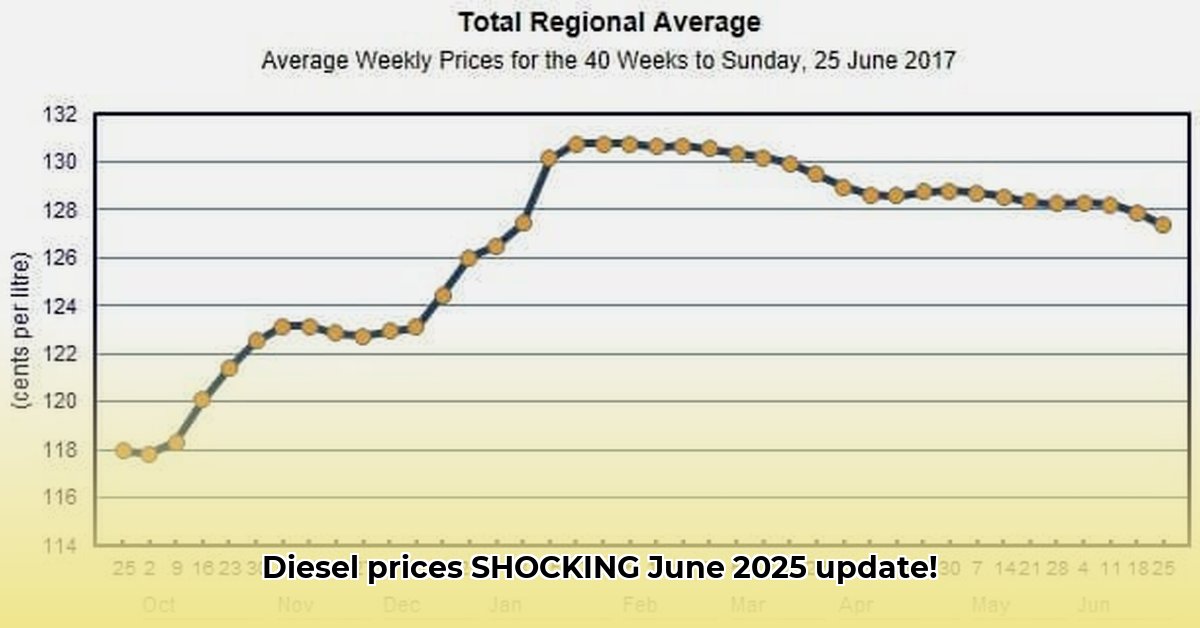
Understanding South Africa's June 2025 Diesel Prices
Ag shame, petrol isn't the only fuel causing a stir! This June 2025 report unpacks the current state of diesel prices in South Africa, exploring the factors driving fluctuations and offering insights into potential future trends. While national petrol price data dominates headlines, the underlying forces affecting diesel are equally – if not more – significant for many South African businesses and consumers.
Key Factors Influencing Diesel Prices
Several interconnected elements play a crucial role in determining diesel fuel costs across the country. These factors often interact in complex ways, making accurate price prediction challenging.
Global Crude Oil Prices: The international price of crude oil remains the most significant driver. Increased global crude oil prices directly translate to higher diesel costs at the pump.
Refinery Capacity & Supply Chain Efficiency: Domestic refining capacity and the effectiveness of the supply chain significantly influence availability and price. Bottlenecks or disruptions can lead to increased prices.
Taxation: National and provincial fuel levies form a substantial component of the final price. Variations in tax rates across different provinces contribute to regional price discrepancies.
Seasonal Demand: Agricultural activities and other seasonal factors impact demand, influencing price fluctuations throughout the year. Peak demand periods typically see higher prices.
Geopolitical Factors: International events (e.g., conflicts, sanctions) introduce uncertainty into global energy markets, often resulting in price volatility.
Regional Price Variations: A Closer Look
South Africa experiences considerable regional variation in diesel prices. This isn't simply due to transport costs. Other factors come into play:
Proximity to Refineries: Areas closer to refineries generally benefit from lower transportation expenses.
Provincial Regulations: Differences in provincial environmental regulations or taxes can lead to price variations.
Market Competition: The level of competition among fuel retailers in a particular area can also influence prices.
Future Outlook: Cautious Optimism
Predicting diesel prices with certainty is difficult. Given the current global economic climate and ongoing uncertainty in international energy markets, continued price volatility is likely. However, factors promoting stability include improved refining capacity and ongoing investments in renewable energy sources.
Implications for Key Stakeholders
Consumers: Careful planning, comparison shopping and awareness of regional price differences are crucial to manage fuel expenses.
Businesses: Effective risk management strategies, which include hedging against price fluctuations and efficient fuel consumption, are crucial for maintaining profitability amidst volatile fuel costs.
Government: Policies relating to fuel taxes, environmental regulations, and investments in infrastructure are critical in shaping the future trajectory of diesel prices and energy security in the country.
Understanding the Risks: A Simplified Assessment
The following table highlights key risks and potential mitigation strategies:
| Risk Factor | Likelihood | Potential Impact | Mitigation Strategies |
|---|---|---|---|
| Global Crude Oil Price Volatility | High | Significant | Hedging, fuel diversification, efficient fuel consumption |
| Refinery Outages/Disruptions | Medium | Moderate | Diversified supply chains, investment in maintenance |
| Geopolitical Instability | Medium | Significant | Monitoring global events, proactive risk management |
| Extreme Weather Events | Low | Significant | Robust infrastructure, contingency planning |
This June 2025 update provides a current perspective on diesel fuel prices. Remember, this analysis should not be considered financial advice. Further independent research is always recommended before making any major decisions.